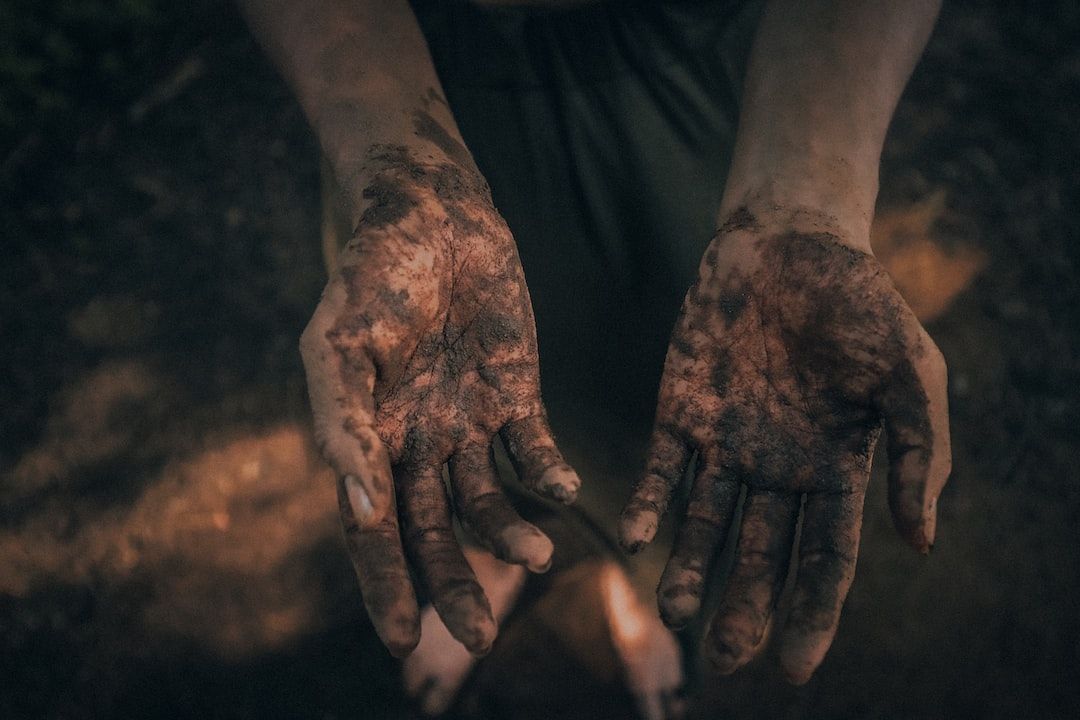
Blog
Stories from my personal journey learning about and delivering Nature-rooted programs across three different countries
Why are we afraid of mud? The call for a mess-benefit assessment...
Caylin (Forest Schooled)

Empty space, drag to resize
You know how there's this movement for risk assessments to also evaluate the benefits rather than just the hazards? These 'risk-benefit assessments' take into account what benefits a participant might reap by taking part in a risky activity. Particularly with regards to children, this method forces us to consider whether eliminating a risk could actually prevent a child from experiencing key opportunities for development and therefore potentially cause them more harm than the risk itself.
By engaging in a risk-benefit assessment, we can better determine whether an activity is worth the risk if we conclude that the benefits outweigh the possible detriments.
(If you're not familiar with risk-benefit assessments, check out this document.
Well, I'm wondering if it's worth applying the same logic to mud... specifically to children playing in mud. But instead of a risk-benefit assessment, I propose we conduct a mess-benefit assessment. I make this suggestion as a direct reaction to a trend I've observed whilst working with children in the outdoors when its rainy and the mud is out in all its glory.
This is what I've observed:
When we reach a muddy area, here are some things children say:
- “Oh no, are we going through that?! But it's muddy!”
- “Ewwwwww! It's getting all over my shoes!”
- And my personal favourite.... “Ugh! These wellies are brand new!” (I felt my eye twitch slightly when I heard this one. I had to refrain from shouting in exasperation, “But that's what wellies are for!!”)
So what's causing these children to fear the mud? I decided to conduct a little research to find out. So I asked children this simple question, “How do you feel about mud?”
This is what they said:
- “Good! I like mud.”
- “It's fun!”
- “I don't mind it.”
- “Raawrrghh!” (Boy holds up his muddy hands like lion claws with a big smile on his face)
Not one child said they disliked mud...Ok, so that's confusing isn't it? The same children who wished to avoid the mud also stated that they actually like it. So what's truly going on here?! After further investigation and observation I began to unravel this mystery. The number one reason why children choose to avoid mud seems to be… because of how they think their parents or the adults looking after them will react if they return covered in mud.
One particular conversation with a child at the end of a session really stood out to me. The boy said to me, “I had fun, but it would have been better if there hadn't been any mud.” I replied, “What didn't you like about the mud?” He said, “That my shoes got all dirty and I have to go in my mum's car. She's gonna kill me.” So I asked, “If you didn't have to worry about your mum's car, how would you feel about mud then?” He said, “Fine, I don't mind it. It's fun.”
This boy's experience is not unusual. Most of the children I've discussed mud with have said something similar. It's usually the fear that they will upset their parents by getting their clothes, shoes, or the car messy. To avoid upsetting their parents they decide it's best to avoid the mud.
So, yes, mud causes a mess. An absolute horrific mess. It gets all over shoes, all over trousers, on hands, and sometimes even faces and hair (not to mention everything the child touches too, including the seat of the car!). It has the tendency to get everywhere. It's a pain to clean up and sometimes even means laundering something twice! What a hassle. But before we conclude that it's best to just avoid mud entirely, we must complete our mess-benefit assessment. So what are the benefits to children playing in mud?
Hyahno Moser (2015) sums up some incredible benefits of mud in the article,
Why Playing in the Mud is More than Just Fun. Here are some of the key points I took from it:
- MUD MAKES YOU HAPPY – New research has shown that exposure to friendly soil bacteria (Mycobacterium Vaccae) stimulates the immune system causing the brain to release serotonin, the endorphin used to regulate mood.
- MUD PLAY BUILDS CREATIVITY – The open-ended nature of mud play is perfect for the developing brain. There is no end to the creations, ideas and games children will invent. During this type of unstructured, outdoor play, children are not only exercising but are building their ability to form ideas, problem solve, and think critically, as well being innovative and inventive.
- KEY MILESTONE DEVELOPMENT ACHIEVED THROUGH MUD PLAY – As children grow through their formative years, mud play will help them achieve many key developmental milestones, such as fine and gross motor skills, sensory awareness, balance and coordination. Mud play will also create opportunities to practice social skills and help children to make sense of the world.
- MUD PLAY CAN REDUCE CHILDHOOD ANXIETY AND STRESS – There is now scientific evidence linking the restorative effects of outdoor play, which can reduce levels of anxiety and stress in children.
- MUD PLAY CREATES CHILDHOOD MEMORIES – Positive childhood experiences while playing outdoors will help to create and strengthen kids’ concept of the outdoors, and reinforce the intrinsic benefits and interest in playing outdoors and being active.
- BUILDING AN ADVENTUREOUS SPIRIT THROUGH MUD PLAY – While kids are braving the mud, sloshing and squelching around, they are challenging themselves, expanding their experiences and in turn, their world. Instilling and nurturing this constructive foundational style of critical thinking and risk assessment in children builds and strengthens their values and attitudes toward adventure, and develops important skills that can be carried through to adulthood.
- MUD BUILDS A CONNECTION WITH NATURE – Playing with mud is a foundational activity that could lead to children further developing a strong and empathetic connection with the natural environment
- MUD IS FUN! For most children, mud play is intrinsically fun, plain and simple. While adults like to understand the full sphere of why mud play is so good for our children, kids will just instinctively play in it. Especially when their parents encourage them to! Children don’t need to understand why this type of play is important to their development. What’s important is that we provide opportunities for them to do it – and give them permission to get dirty!
So, now that we've completed a mess-benefit assessment, what would you decide? Should we teach children to love mud or fear it?
References:
Moser, H (2015) Why Playing in the Mud is More Than Just Fun, http://www.natureplayqld.org.au/article/why-playing-in-the-mud-is-more-than-just-fun, 22/06/2016.
More Posts
WANT TO GET FOREST SCHOOLED TOO?
Subscribe to my email letters, something special from me to you so we can learn together. Each one is filled with heart-felt stories from the forest, resources you may find useful, and things that hopefully bring a smile too.
Thank you!
© by FOREST SCHOOLED
